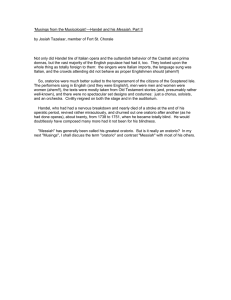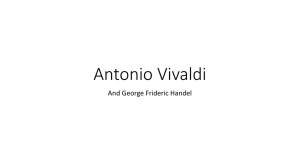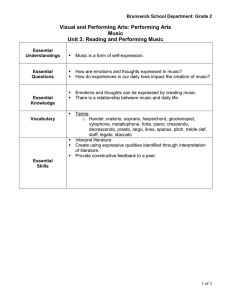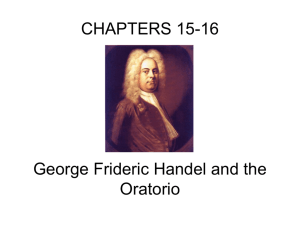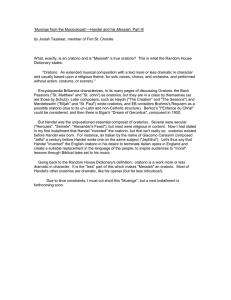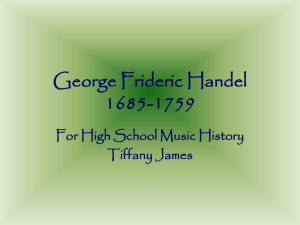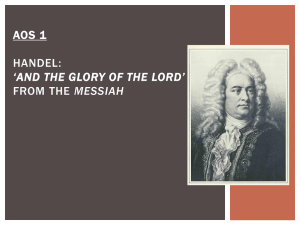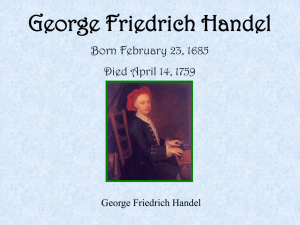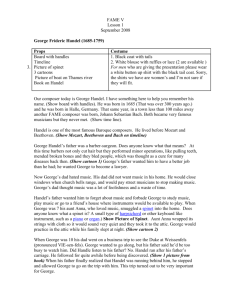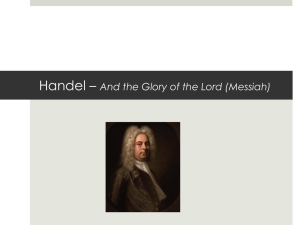Messiah by Josiah Tazelaar, member of Fort St. Chorale
advertisement
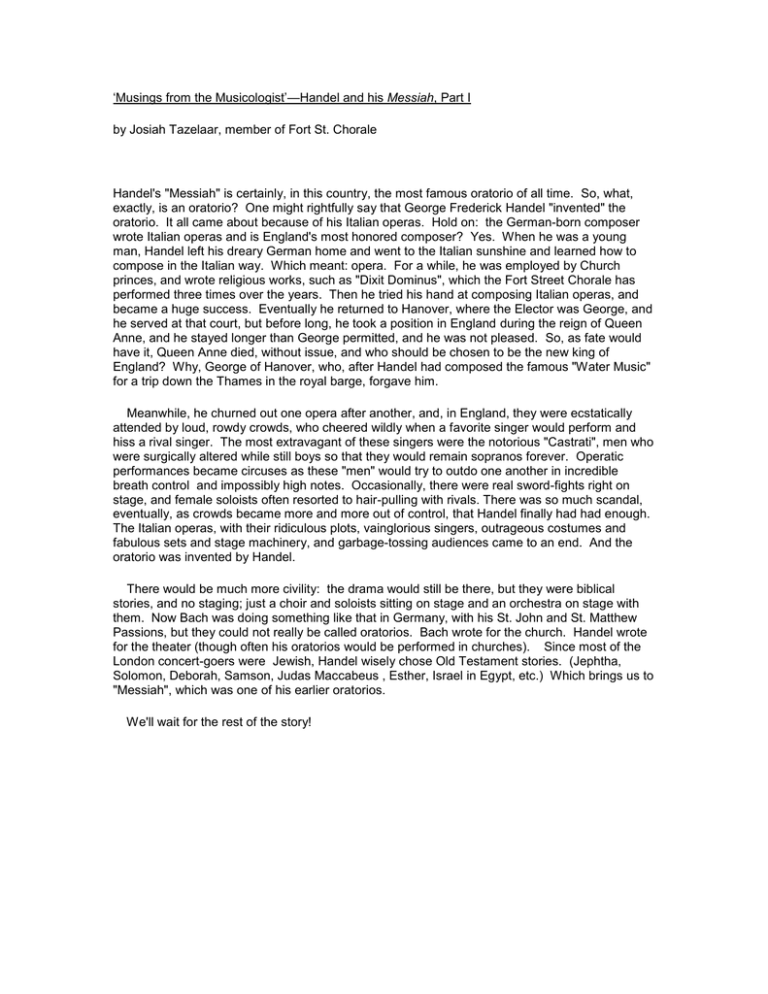
‘Musings from the Musicologist’—Handel and his Messiah, Part I by Josiah Tazelaar, member of Fort St. Chorale Handel's "Messiah" is certainly, in this country, the most famous oratorio of all time. So, what, exactly, is an oratorio? One might rightfully say that George Frederick Handel "invented" the oratorio. It all came about because of his Italian operas. Hold on: the German-born composer wrote Italian operas and is England's most honored composer? Yes. When he was a young man, Handel left his dreary German home and went to the Italian sunshine and learned how to compose in the Italian way. Which meant: opera. For a while, he was employed by Church princes, and wrote religious works, such as "Dixit Dominus", which the Fort Street Chorale has performed three times over the years. Then he tried his hand at composing Italian operas, and became a huge success. Eventually he returned to Hanover, where the Elector was George, and he served at that court, but before long, he took a position in England during the reign of Queen Anne, and he stayed longer than George permitted, and he was not pleased. So, as fate would have it, Queen Anne died, without issue, and who should be chosen to be the new king of England? Why, George of Hanover, who, after Handel had composed the famous "Water Music" for a trip down the Thames in the royal barge, forgave him. Meanwhile, he churned out one opera after another, and, in England, they were ecstatically attended by loud, rowdy crowds, who cheered wildly when a favorite singer would perform and hiss a rival singer. The most extravagant of these singers were the notorious "Castrati", men who were surgically altered while still boys so that they would remain sopranos forever. Operatic performances became circuses as these "men" would try to outdo one another in incredible breath control and impossibly high notes. Occasionally, there were real sword-fights right on stage, and female soloists often resorted to hair-pulling with rivals. There was so much scandal, eventually, as crowds became more and more out of control, that Handel finally had had enough. The Italian operas, with their ridiculous plots, vainglorious singers, outrageous costumes and fabulous sets and stage machinery, and garbage-tossing audiences came to an end. And the oratorio was invented by Handel. There would be much more civility: the drama would still be there, but they were biblical stories, and no staging; just a choir and soloists sitting on stage and an orchestra on stage with them. Now Bach was doing something like that in Germany, with his St. John and St. Matthew Passions, but they could not really be called oratorios. Bach wrote for the church. Handel wrote for the theater (though often his oratorios would be performed in churches). Since most of the London concert-goers were Jewish, Handel wisely chose Old Testament stories. (Jephtha, Solomon, Deborah, Samson, Judas Maccabeus , Esther, Israel in Egypt, etc.) Which brings us to "Messiah", which was one of his earlier oratorios. We'll wait for the rest of the story!
